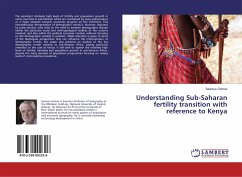
Understanding non-enrollment in Ghana's national health insurance scheme
Versandkostenfrei!
Versandfertig in 6-10 Tagen
27,99 €
inkl. MwSt.

PAYBACK Punkte
14 °P sammeln!
Ghana's National Health Insurance Scheme has not achieved full population coverage although it is a social health insurance scheme, a model increasingly gaining weight as carrying the potential to incorporate the poor and low-income groups. Bearing similarity with numerous studies on non-enrollment, socio-economic factors are found to be the most influential explanatory reasons. The study adopts the decision-making theories, and secondary literature on enrollment as the theoretical perspectives against which informants' opinions are explored. Individual interviews were conducted selectively, s...
Ghana's National Health Insurance Scheme has not achieved full population coverage although it is a social health insurance scheme, a model increasingly gaining weight as carrying the potential to incorporate the poor and low-income groups. Bearing similarity with numerous studies on non-enrollment, socio-economic factors are found to be the most influential explanatory reasons. The study adopts the decision-making theories, and secondary literature on enrollment as the theoretical perspectives against which informants' opinions are explored. Individual interviews were conducted selectively, spreading across the desired socio-economic categories. It is revealed that the ability to pay the premium, employment, and income level, dependency rate, risk perception, perceived health status, health-seeking behavior, trust, quality of service, politics, chieftaincy disputes, geographical barriers and the continuous inaccessibility to information are the pervasive decisive factors. There are also challenges with the indigent selection, scheme financing, service provision and coverage extension.












